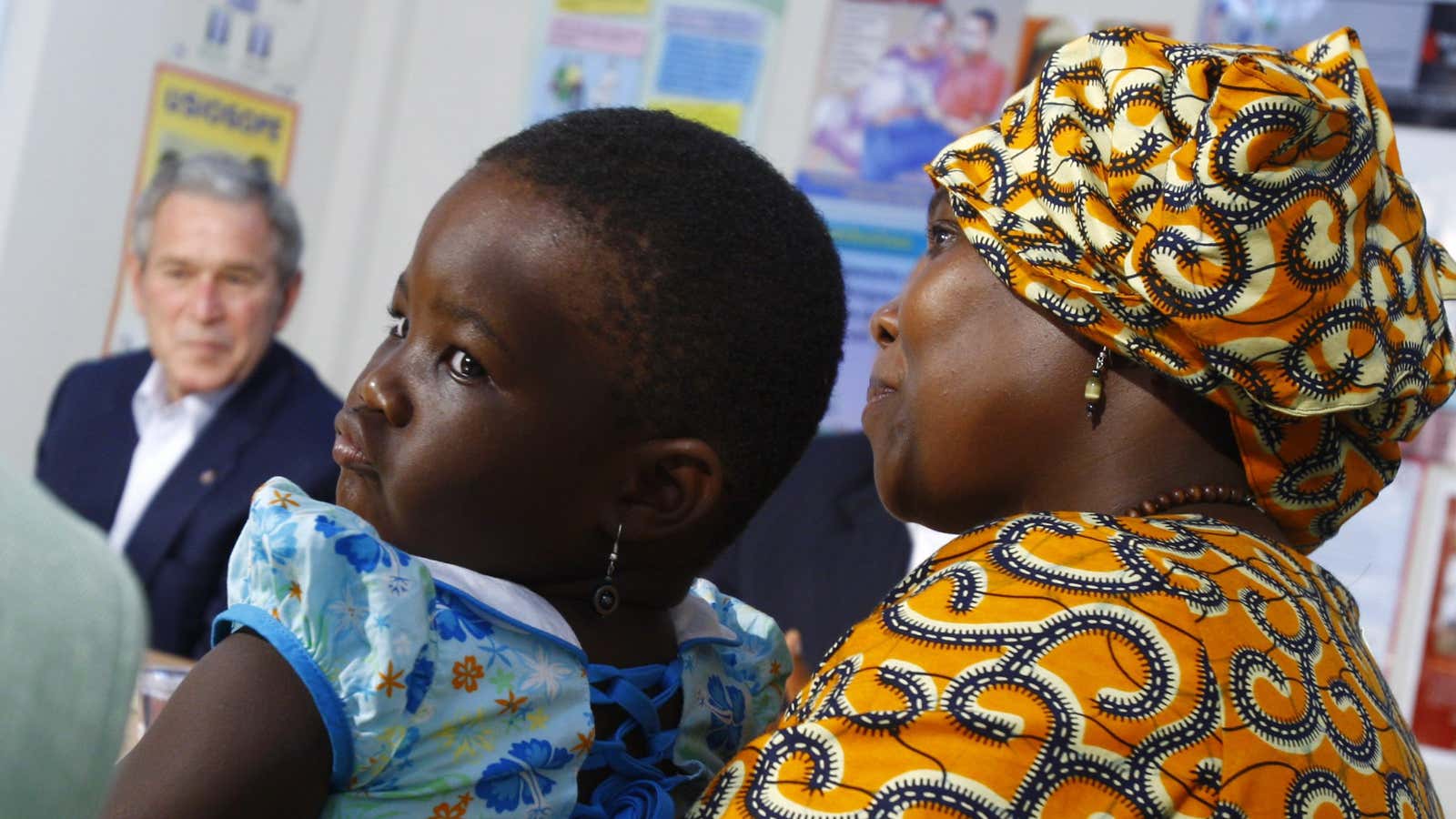President-elect Donald Trump isn’t particularly concerned with Africa: Over the course of his campaign, the continent was barely mentioned. But glimpses at Trump’s broader foreign policy suggest he’ll favor a mix of aggression and isolationism over increased global cooperation, and is very unlikely to be a champion of humanitarian aid. All of that is bad news for Africa.
Trump’s opinions on Africa have never been particularly complimentary. But throughout his bid for the White House, Trump emphasized America’s need to spend more money at home, and less overseas, including on foreign aid. It’s a view shared by a significant segment of America: Since 2009, an annual poll from the Kaiser Family Foundation has found that most Americans either overestimate or don’t know the percentage of the US budget going to foreign aid. Of the 1,505 people polled last year, the average guess was 26%. The actual figure is less than 1%.
Campaign rhetoric (and tweetstorms) aside, actual reductions in foreign aid could have a major impact, particularly in Africa. Since 2004, the US has spent more than $70 billion on the continent through the President’s Emergency Plan For Aids Relief, or PEPFAR. The initiative has had a major health impact, and (despite some criticisms) spurred positive side effects for gender equality and children’s rights.
Trump’s hawkish views on terrorism could also have negative impacts for Africa. While the Obama administration’s failure to address the power vacuum created by Muammar Gaddafi’s death in Libya allowed Islamic extremist groups like ISIS and Al-Qaeda to take advantage of regional disorder, the Trump administration could go to the other extreme, advocating militarized responses to potential terror threats. That type of approach would be a boon for terrorist recruiters in Africa, and authoritarian leaders on the continent and around the world.
“A Trump presidency would likely see elevated support for authoritarian leaders—many of whom govern African states—who use counterterrorism as a guise to repress citizens who voice opposing views, further restricting civil liberties,” said Zachary Donnenfeld, a researcher at the Institute of Security Studies in South Africa.
The first test of Trump’s Africa’s policy may come relatively soon. The African Growth and Opportunity Act trade agreement, which gives African exports to the US preferential treatment, expires in 2025. Trump’s administration will need to begin negotiating its renewal soon after he takes office.




